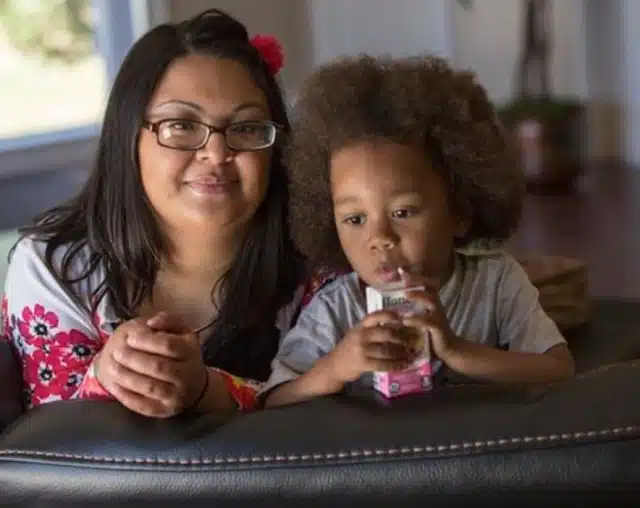With regular prenatal visits and no morning sickness, weight gain, or complications, Kimberly had no reason to expect any issues during the delivery of her highly anticipated baby boy.
She was attending college at the time, finishing classes in preparation for dental school and a career as a dental hygienist. She was always eager to try new things and was even training to run her first marathon. When Kimberly found out she was pregnant, she radiated happiness. Her glow was even more perceptible when she found out her close friend was also pregnant – they were going to share the joy of the experience with each other.
A two-time rape survivor, Kimberly was extremely diligent in educating her birth providers on her trauma and the simple things she would require from them: transparency and clear communication during each step of the birth process.
However, only several pushes into delivery and with scissors in hand, the doctor announced that he was going to perform an episiotomy.
Episiotomies – a surgical incision between the anus and vulva during childbirth – were common in the late 70s. But by the 80s, episiotomies were no longer recommended and only used if the baby were in distress and needed to be delivered quickly. Medical professionals concluded that mothers recovered much faster from a natural tear than a forced incision.
Kimberly had not planned for an episiotomy. She continually and calmly asked her doctor why it was necessary to cut her. Her labor was progressing normally, she was healthy, and she had only just begun to push.

Her doctor’s responses were hostile and defensive. He asked why she was questioning his authority as a doctor. He asserted that if she didn’t like it, she could have the baby on the floor and told her, “You can go home and do it. You go to Kentucky.”
While she pleaded with him to let her try naturally, he proceeded to make 12 nonconsensual incisions in her body.
After the delivery of her beautiful son, Kimberly was physically and emotionally traumatized. The wound her doctor had created would not heal. She endured extreme pain when sitting down and had to completely change her diet. Her life and her pain revolved around those 12 incisions..
“I have full blown PTSD, I have anxiety, and I’m paranoid all the time. It’s all because of the injury,” explains Kimberly. The unwanted episiotomy built on a history of assault and reinforced a fearful protectiveness over her body: “I couldn’t trust anybody ever again with my body. Like for anything simple, even getting glasses.”
Kimberly decided she had to fight. Not just for herself but for all mothers and people whose pain is not believed and whose choices are not honored.

When she tried to hold her providers accountable, she was turned away by 80 lawyers. She was forced to proceed down a different route to justice. With the help of a women’s advocacy group, Improving Birth, she successfully mounted a battery and assault case against her doctor, bolstered by video evidence of the delivery that her mother had recorded.
Her case has been essential in raising awareness surrounding obstetric violence and has been inspiring to other mothers whose stories of assault and trauma have been brushed aside.
However, when she submitted a complaint against the doctor to the Medical Board of California, the Board took so long to respond that the doctor passed away before any action was taken. Kimberly says she wishes the Board had taken her case seriously to set a standard for other doctors.
“We have consent over our bodies. No means no. You shouldn’t be assaulted during childbirth, or in any case and you should be believed when you go to the doctor.”
Kimberly supports Medical Board reform. She believes that it shouldn’t take years to validate a woman’s story of assault, pain, and suffering and hold the wrongdoer accountable.


